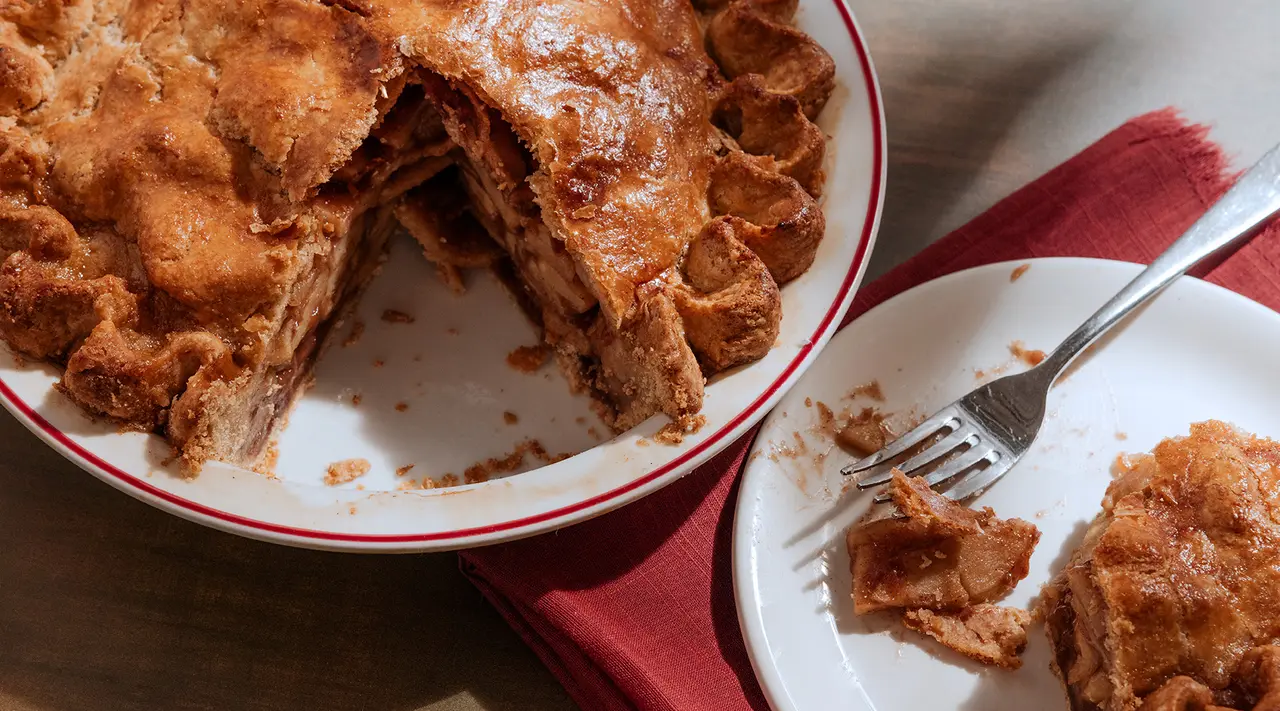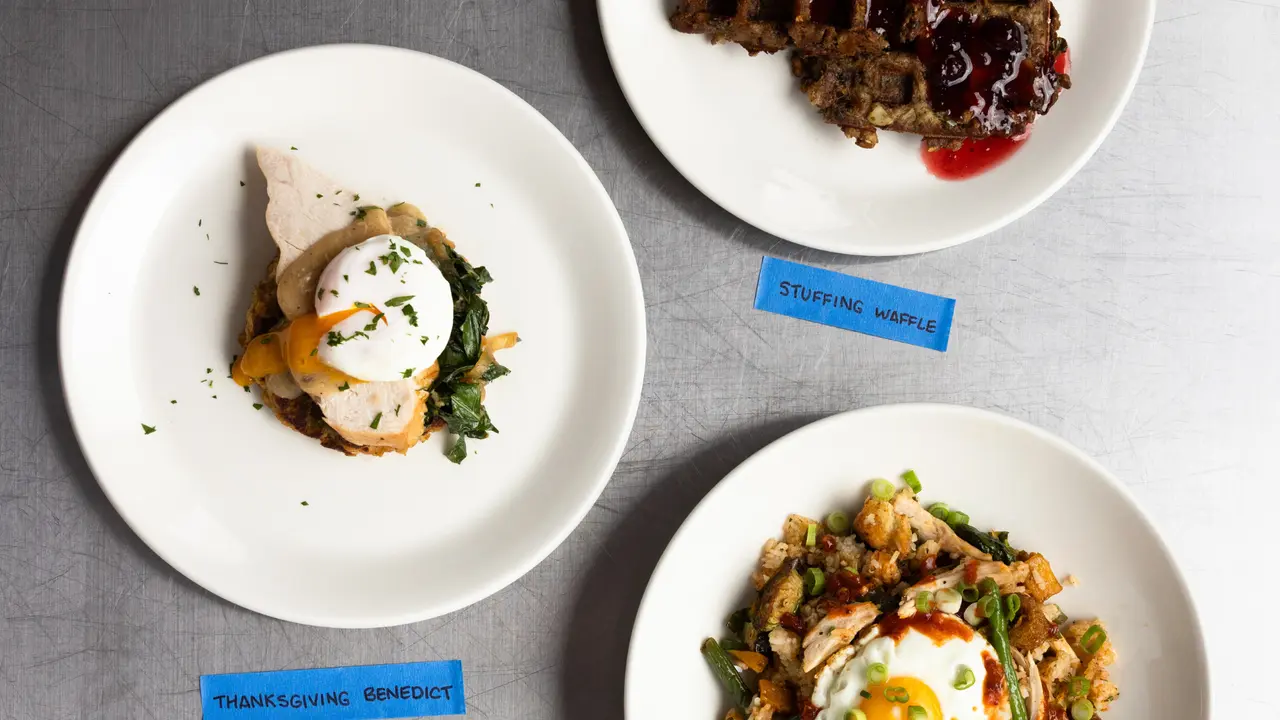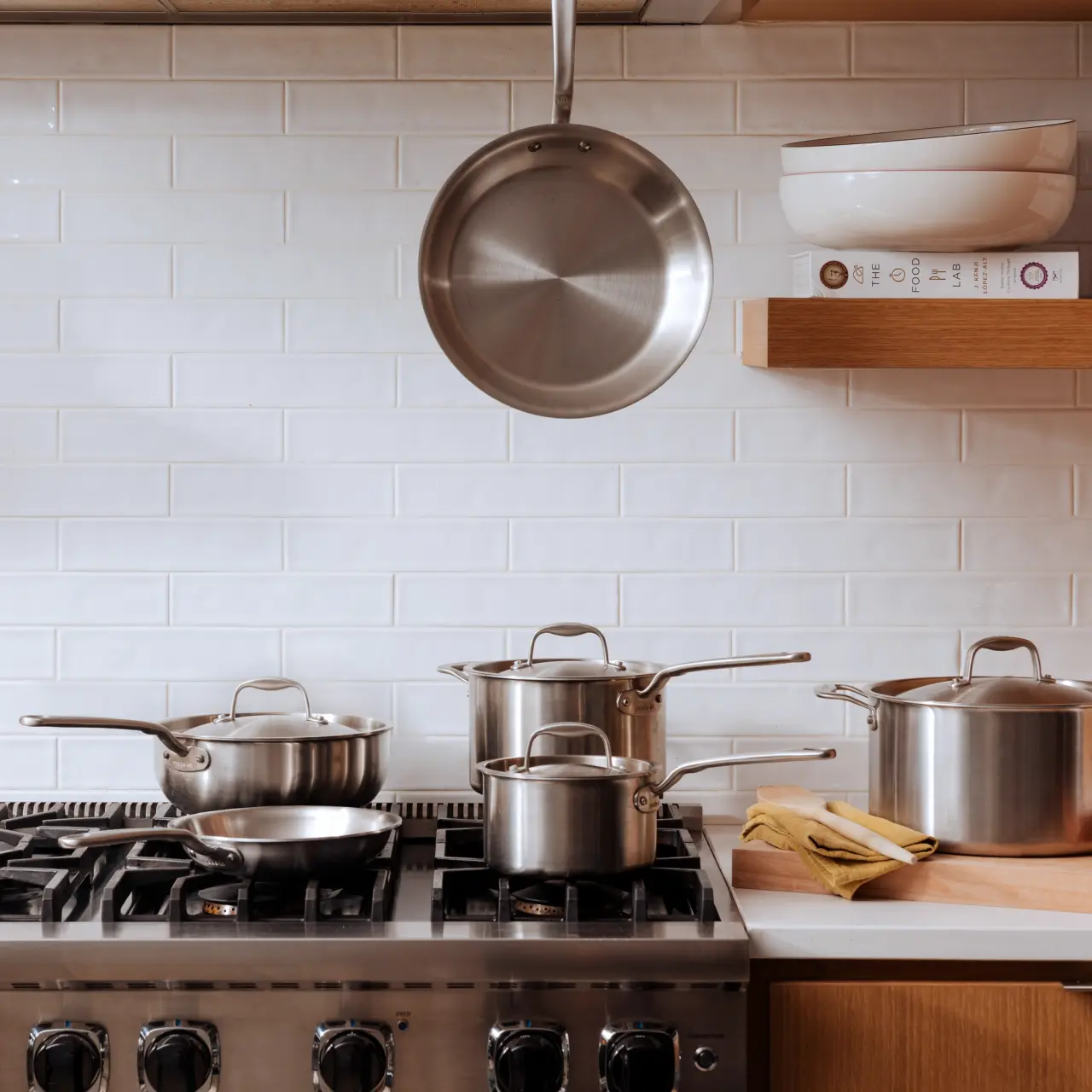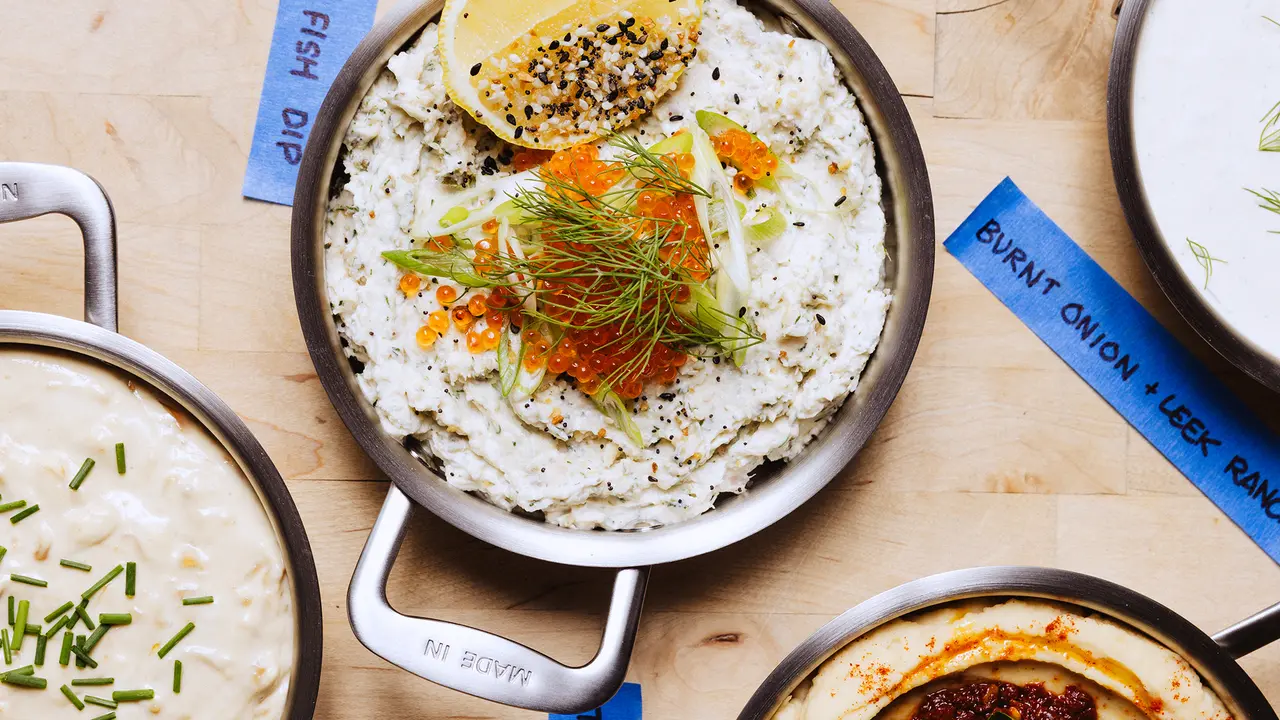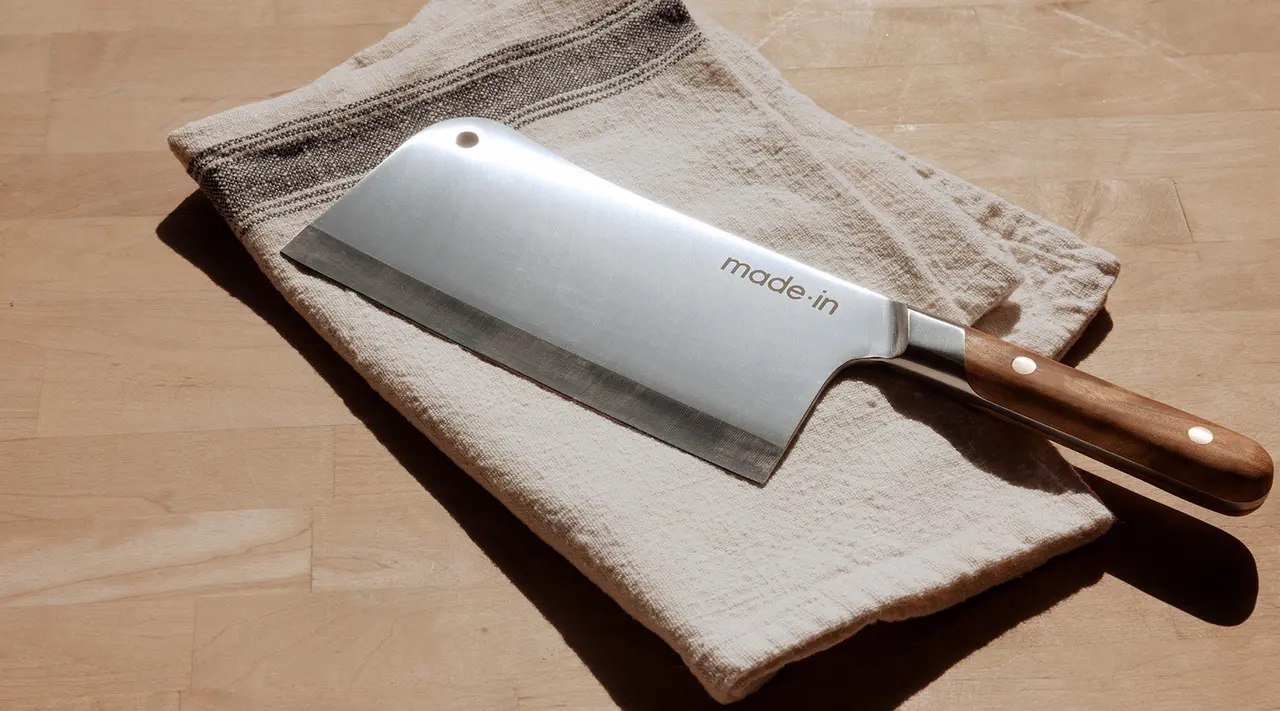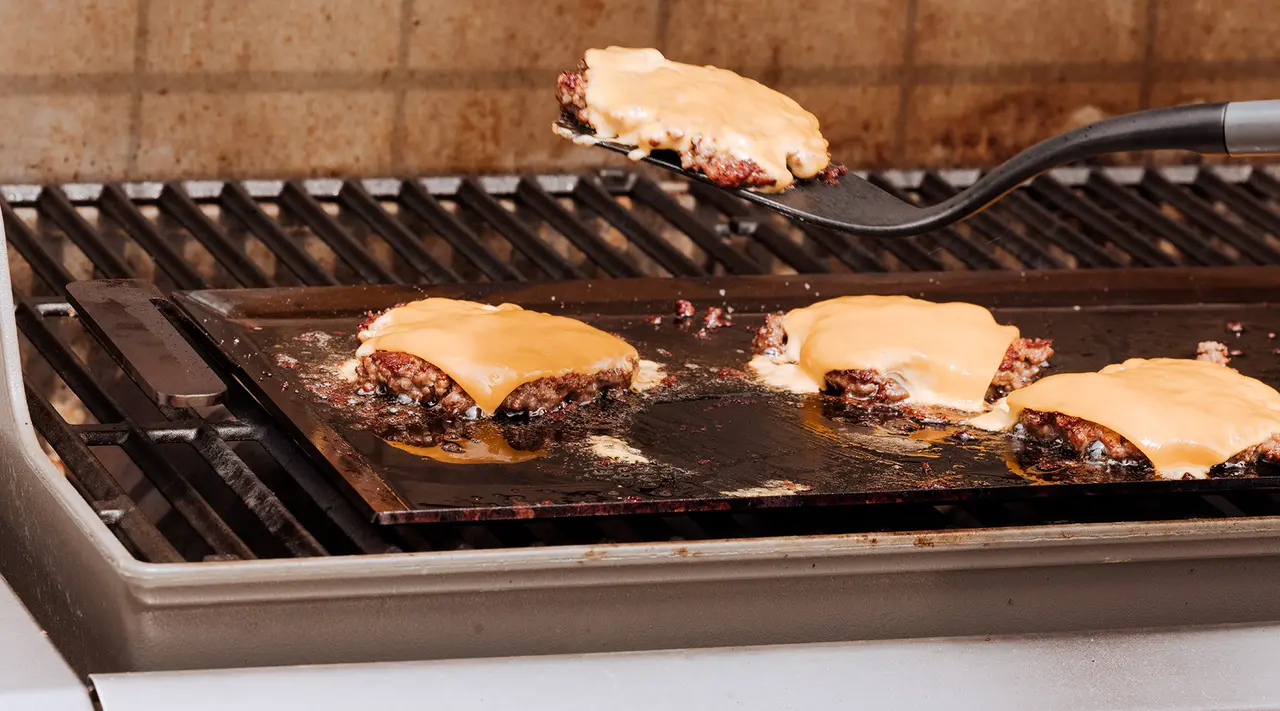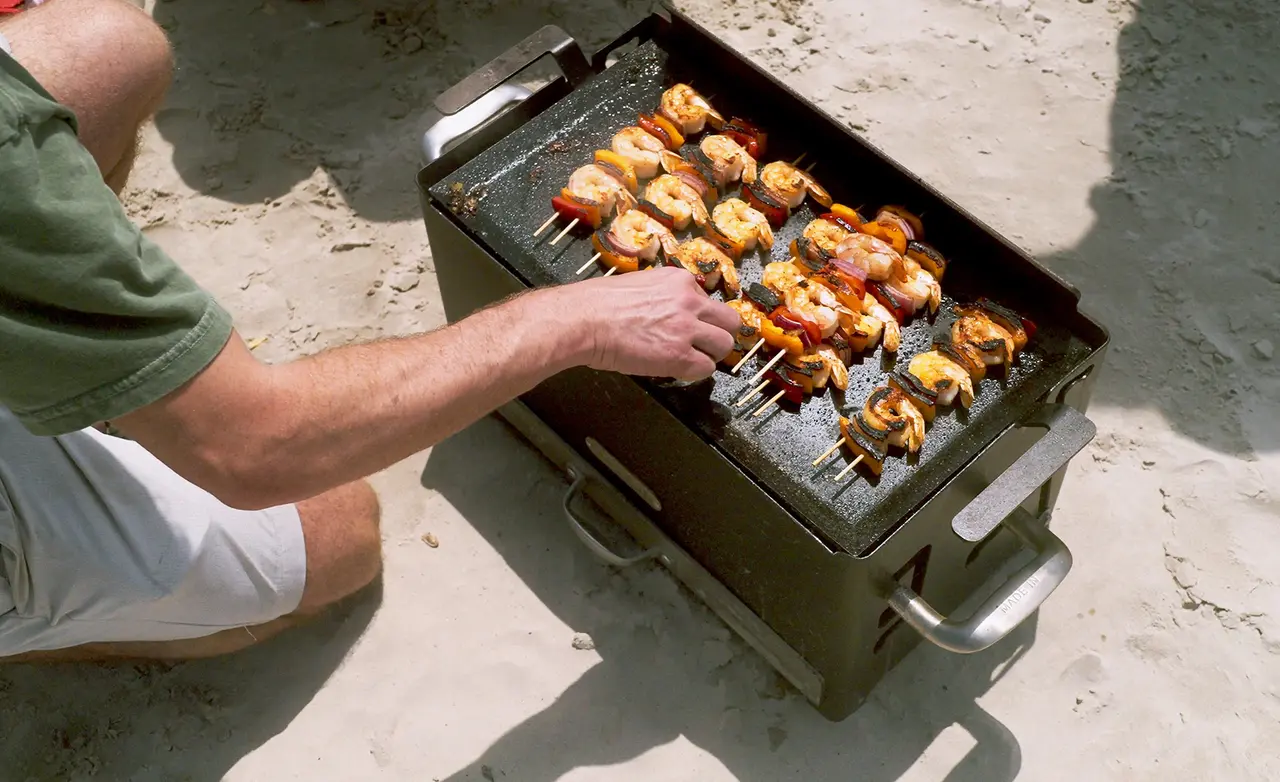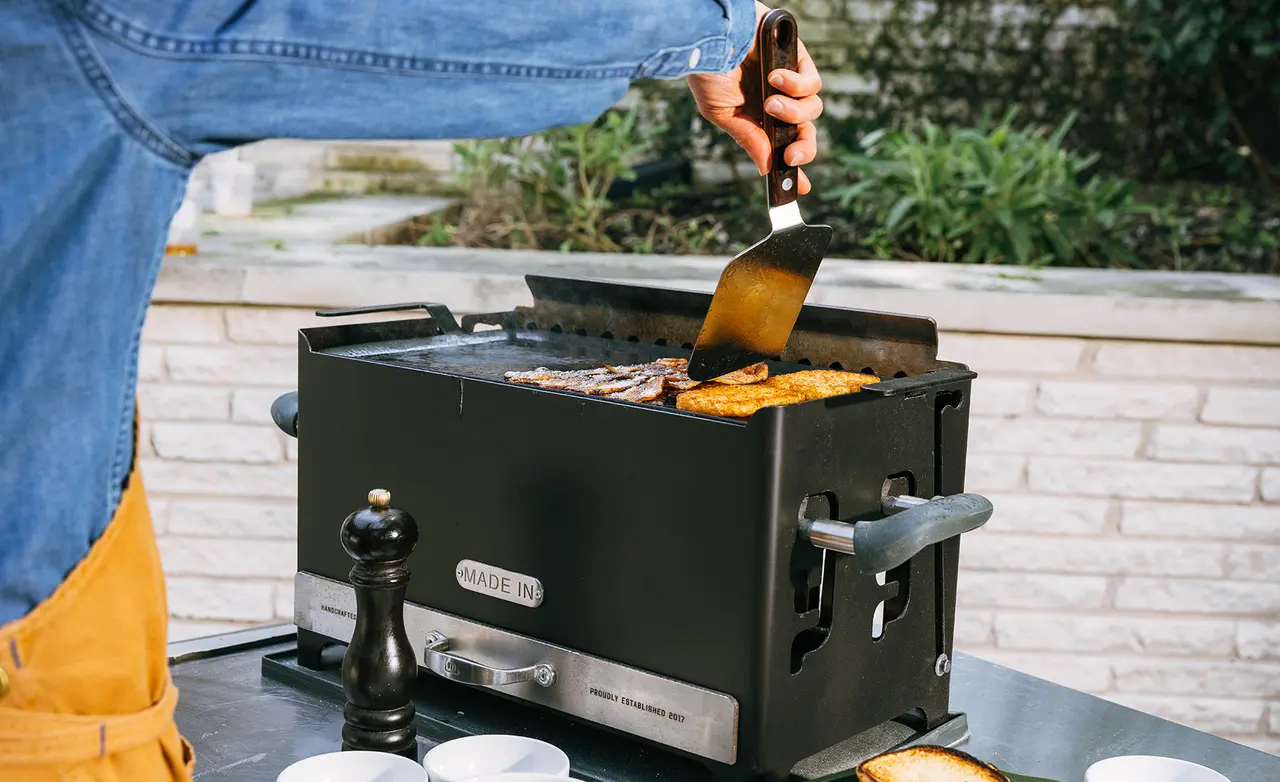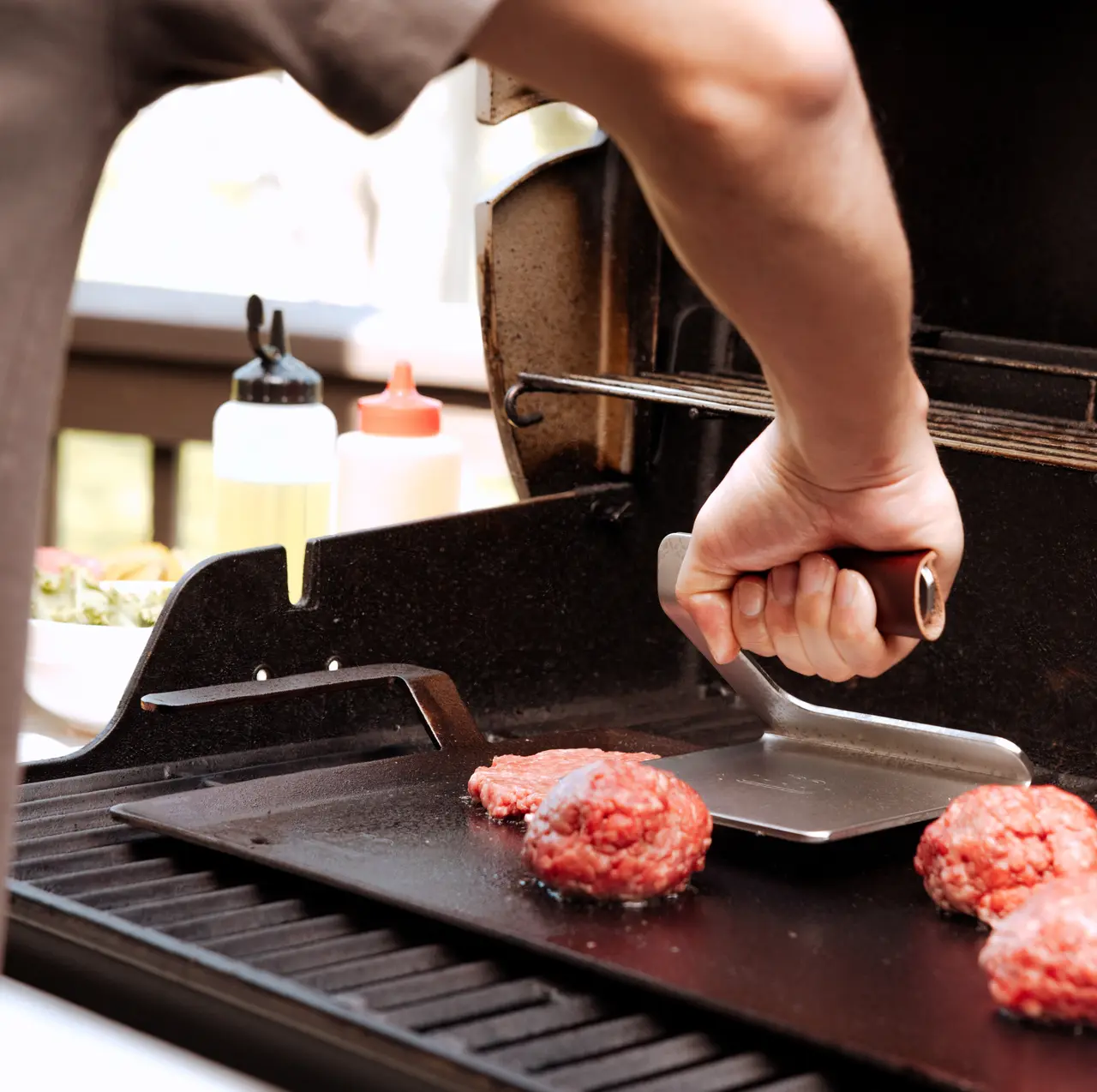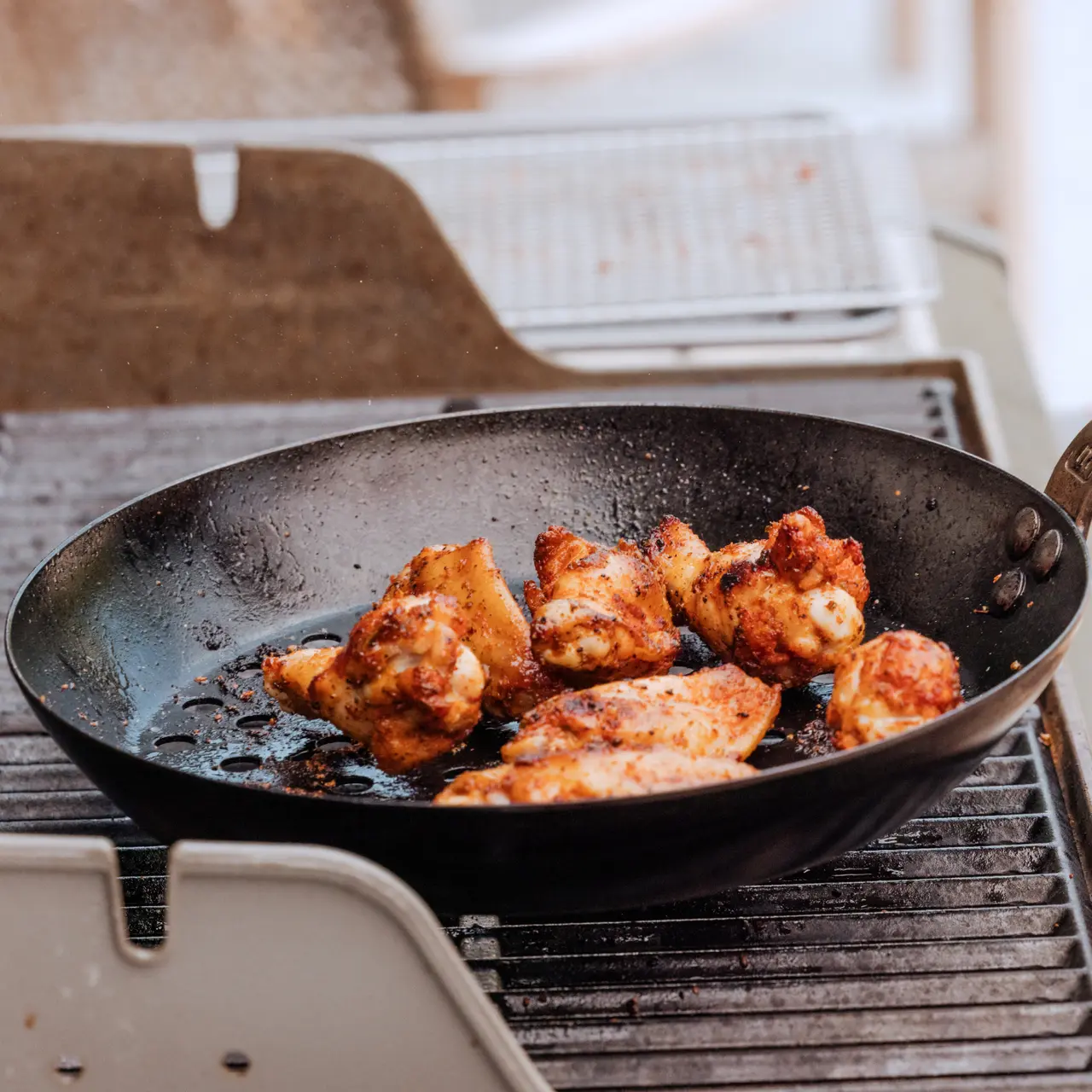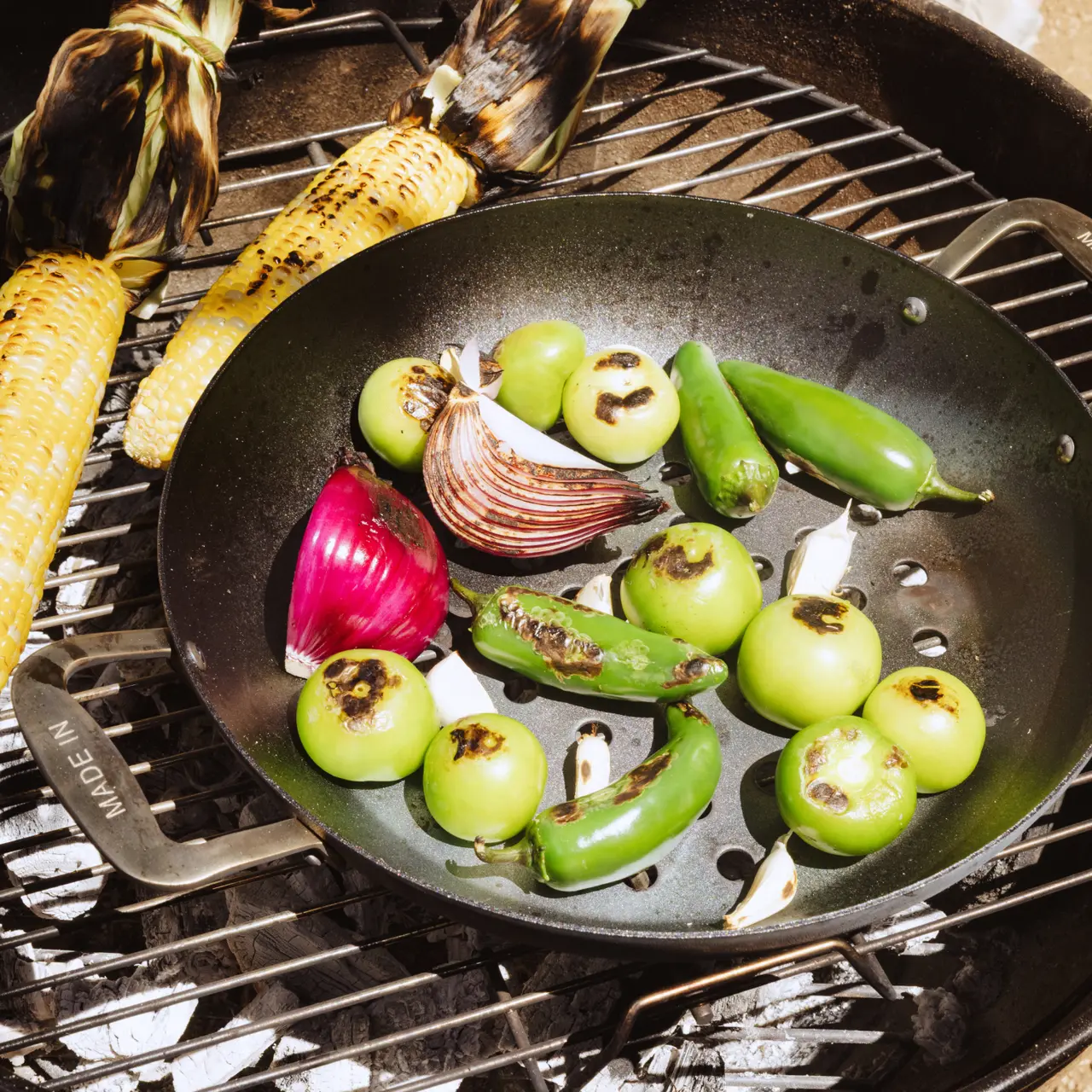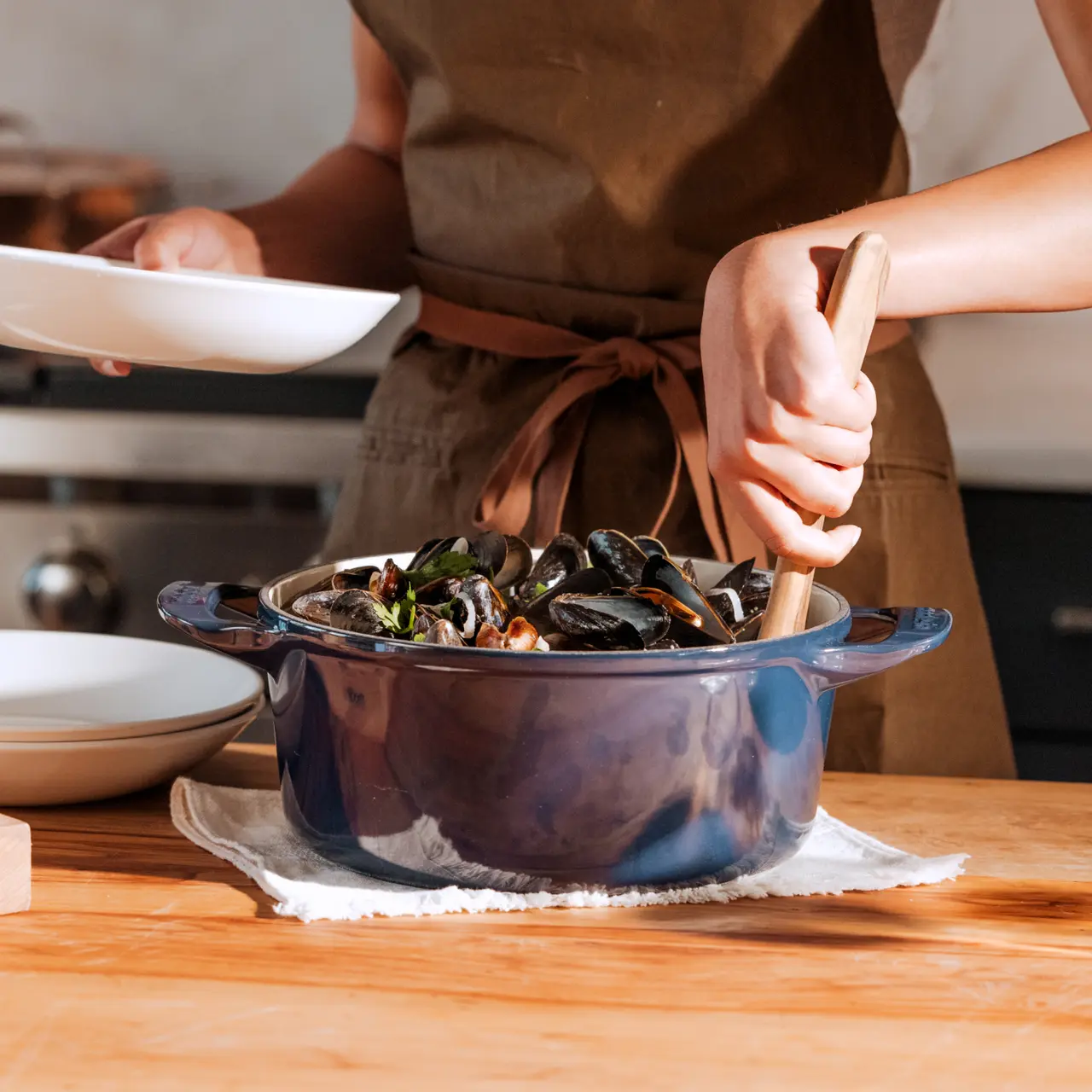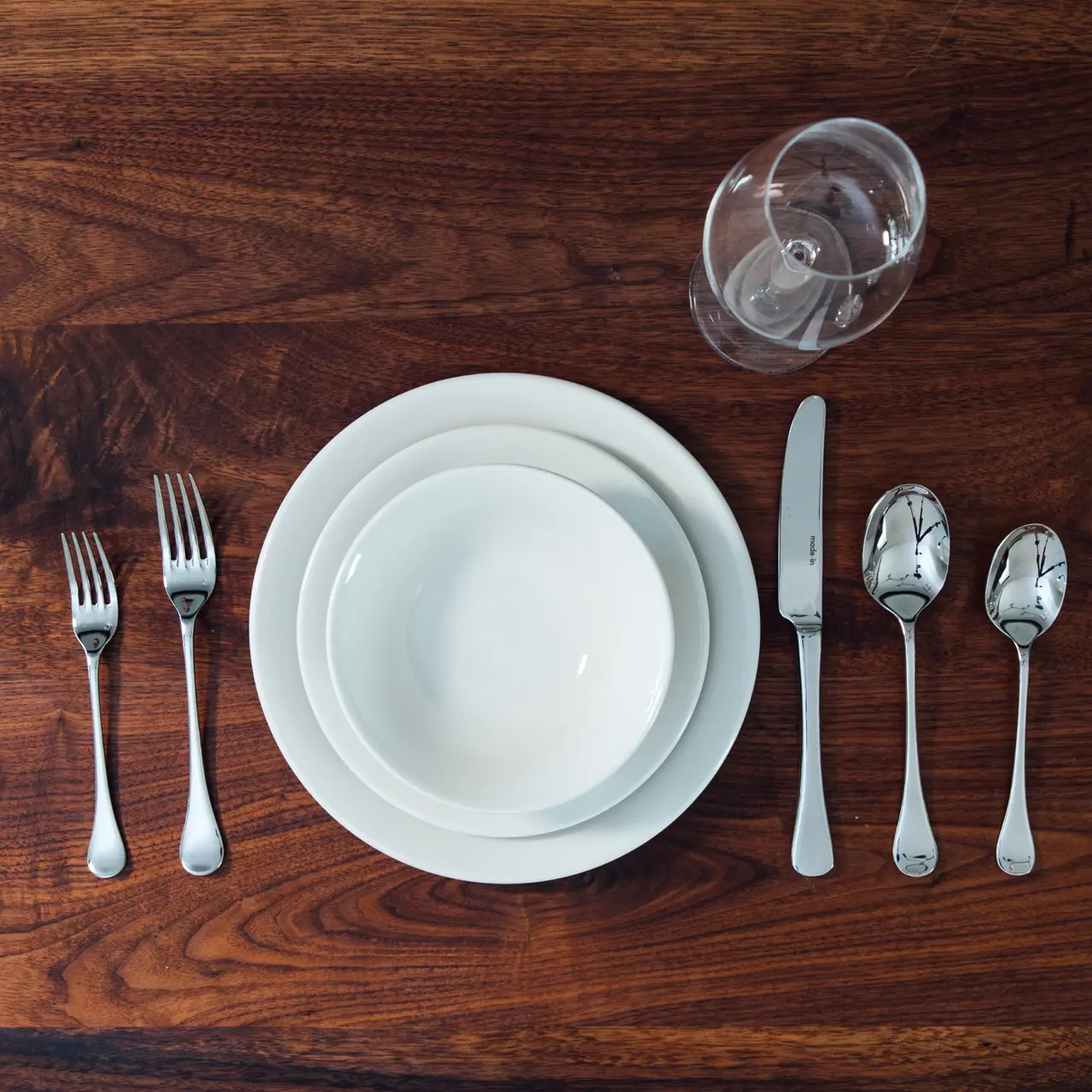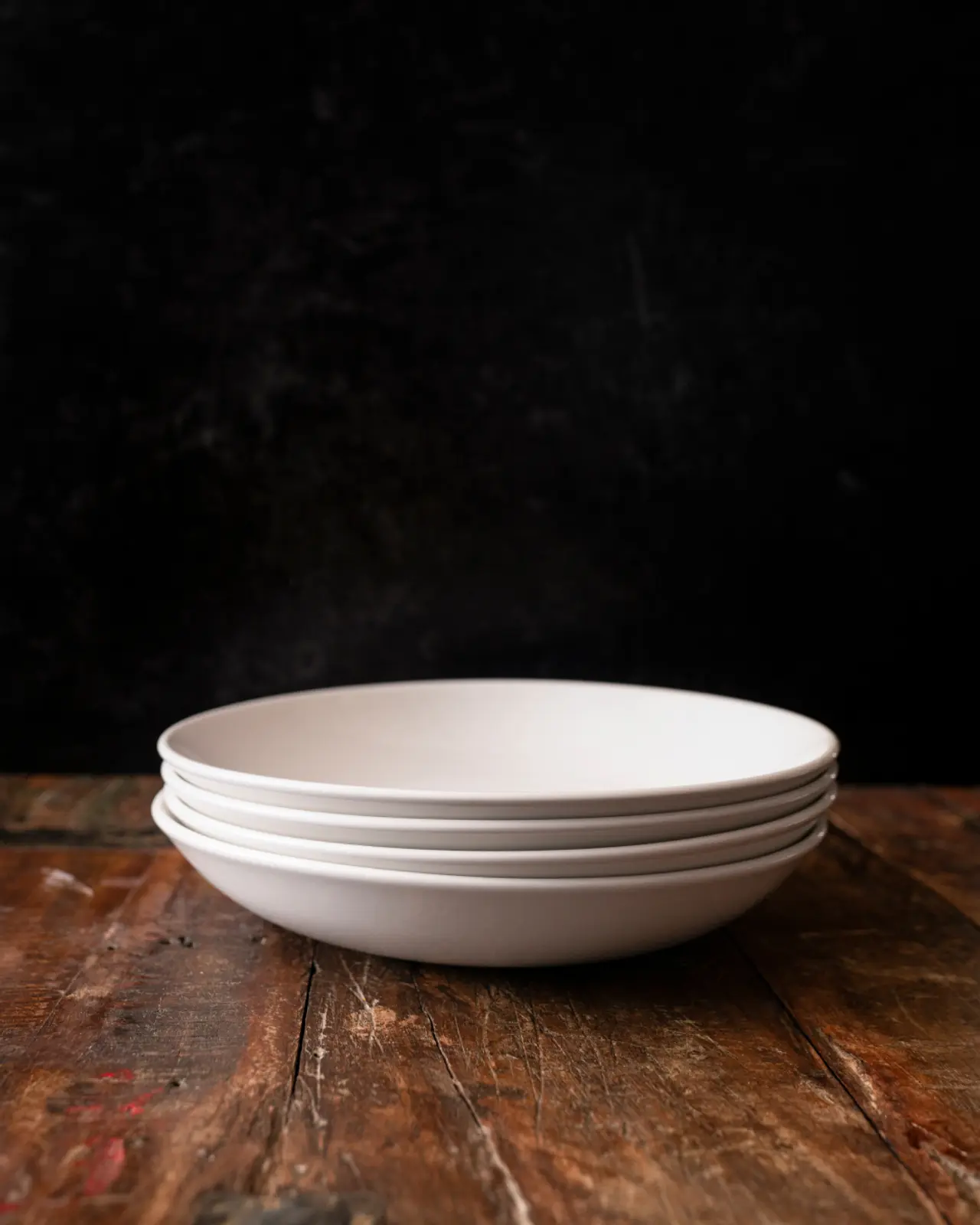Pie has a lot of moving parts. The crust, the filling, the topping. It can be intimidating, so we’re here to clear one of those up. We asked our friend Chef Nicole Rucker for some advice on how to make the perfect pie crust. Chef Nicole makes the best pies in Los Angeles at Fat + Flour, and is a wealth of knowledge when it comes to any dessert. But pies, well, they are her favorite. So if there’s a pie dough technique you’ve always been unsure of if it’s true or not, we have some answers, once and for all.
Is Ice Water in Your Dough the Key to Flaky, Tender Pie Crust?
“No, it’s not,” Chef Nicole says. “The reason you want ice water or any iced liquid to touch the flour is because you want the gluten to develop at a controlled rate. So when lukewarm or warm water touches flour, it makes gluten faster. That’s why the temperature is relevant, but it doesn’t help create flakes.”
Should You Put Vodka in Your Crust?
“Vodka and all alcohols act as a tenderizer. Some people like to use it in their water or in place of it. I don’t use it,” she says. Instead, she uses a mixture of vinegar and brown sugar, which also helps control the gluten structure and adds more flavor than an alcohol would.
Do You Need to Use Pie Beads?
“Well you don’t need beads, but if you’re making a single crust pie, you do need something to hold it in place,” Chef Nicole says. “If you made the pie dough right, it’s going to have pockets of air, so you need something to hold it down. At Fat +Flour, we use a big bucket of garbanzo beans instead of beads, but beads will work.”
What’s Better, Crisco or Butter?
“Butter,” she says. “Crisco has no water in it, so it doesn’t create flakiness like butter does, and if you’re between Crisco and Lard, definitely Lard. It’s better because it has more flavor than Crisco.”
Can Humidity Affect Your Crust?
“Humidity affects everything in baking all the time,” she says. “Flour is going to not take on as much liquid from your recipe, so it’s important to control the humidity in the room for sure.”
Should You Prebake Your Crust?
“It depends on the recipe. If you’re making a custard or a pecan pie or a banana cream pie, prebake it, but if you’re making a fruit pie, in my opinion, you don’t need to.”
Should You Egg Wash Your Crust?
“Yes you should always do it,” Chef Nicole says. “Because you’re using sugar on the top of the crust, eggwash is going to hold the sugar on and help you create a crunchy texture. It also has fat, and is going to help give you that nice, golden brown coloring.”
